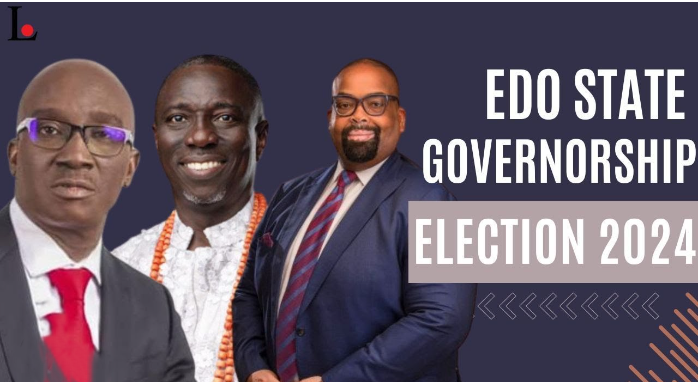By Victor Itodo Abuh
THE EDO State governorship election held on the 21st of September 2024, will be remembered as a defining moment in Nigeria’s democratic extension.
In a state known for its dynamic political culture, this election was more than just a contest between the ruling and opposition parties—it was a test of the country’s commitment to free, fair, and credible elections.
The political climate leading up to the election was tense.
Edo has been a battleground for some of the most intense electoral struggles in recent years, and the 2024 election was no exception.
Incumbent Governor Godwin Obaseki, who had served two terms, was ineligible to contest, opening the field for new contenders. Both the ruling party in the state, the People’s Democratic Party (PDP), and the All Progressives Congress (APC) fielded strong candidates who drew large crowds at their rallies.
However, this election went beyond party lines—it was about addressing the pressing issues of governance, security, and economic challenges that have plagued Edo State for years.
One of the key highlights of this election was the youth vote.
Across Nigeria, young people are becoming increasingly disillusioned with the political status quo, and Edo State is no exception.
With the Not Too Young to Run Act and a surge in youth activism, many young Edo voters saw the 2024 governorship election as an opportunity to push for real change.
Social media platforms buzzed with debates, endorsements, and critiques, as young voters made their voices heard. They were not just observers of the political process but active participants shaping the discourse.
Yet, as is often the case in Nigerian elections, there were concerns about the transparency of the process. Reports of voter intimidation, vote buying, and electoral violence surfaced, casting a shadow over the results.
These are familiar challenges in the country’s electoral history, but what stands out in 2024 is the determination of civil society organizations and election monitoring bodies to ensure that the process remained as fair as possible.
Despite the obstacles, many voters braved long lines, security threats, and harsh weather to cast their ballots, showing that democracy is still alive in Edo.
One major talking point in the aftermath of the election is the role of the Independent National Electoral Commission (INEC).
Having been under fire for its handling of past elections, INEC had a lot to prove in Edo.
The introduction of technology, such as the Bimodal Voter Accreditation System (BVAS) and the electronic transmission of results, was aimed at curbing malpractices.
However, some technical glitches and delayed results marred the process.
This raised questions about the commission’s preparedness and the need for further reforms to make Nigeria’s electoral system more efficient.
Another critical issue is the level of violence that accompanied the election. Political thuggery and violence are regrettably not new in Nigeria’s electoral landscape, and the 2024 Edo governorship election was no exception.
In some parts of the state, incidents of violence were reported, particularly in rural areas where political godfathers wield significant influence.
This once again underscores the need for stronger security measures during elections and a concerted effort to dismantle the culture of impunity that surrounds political violence.
The candidates in the election ran campaigns that highlighted Edo State’s key issues, including unemployment, poor infrastructure, and insecurity.
However, one critique that has emerged post-election is that the debates and manifestos focused too heavily on short-term fixes rather than addressing the structural problems that continue to hamper the state’s development.
Voters in Edo are looking for more than just quick wins—they want leaders who will tackle the root causes of poverty, create sustainable jobs, and improve the state’s economy in a meaningful way.
While the Edo State governorship election of 2024 was not without its challenges, it reflects the ongoing struggle to deepen democracy in Nigeria.
The determination of the electorate, particularly the youth, to demand more from their leaders is a positive sign.
But to truly achieve the democratic ideals that Nigeria aspires to, there must be a concerted effort to address electoral malpractice, ensure the independence of INEC, and put an end to political violence.
The election is over, but the real work begins now, and the incoming administration will need to focus on governance that delivers results, restores faith in the political process, and ensures that the will of the people is genuinely reflected in their leadership.
Victor Itodo Abuh, a young columnist writes in from Abuja via victorabuh84@gmail.com





